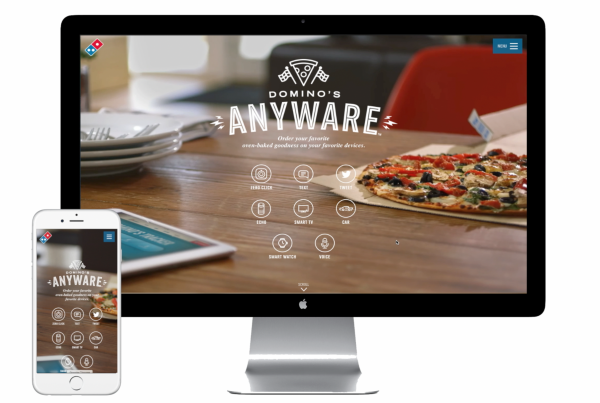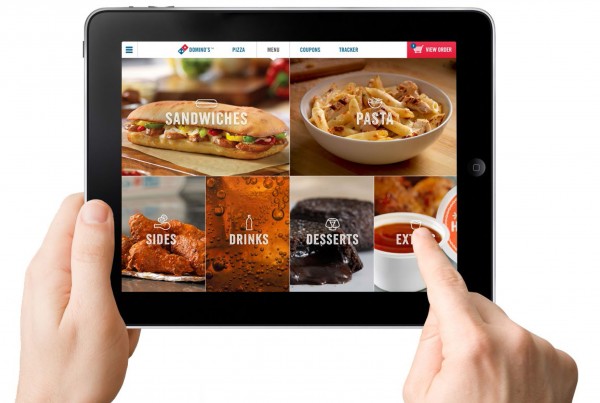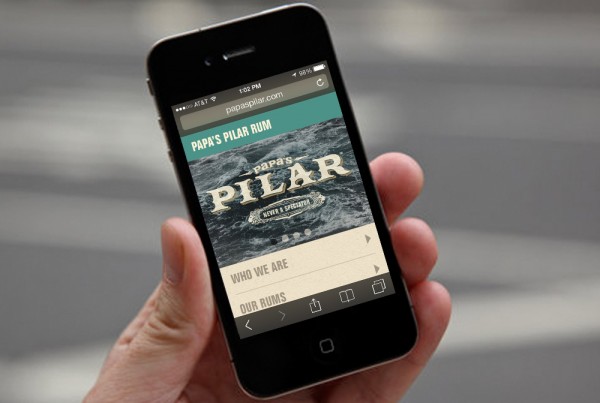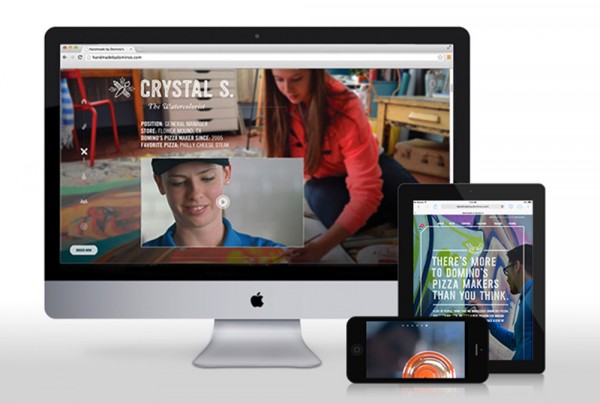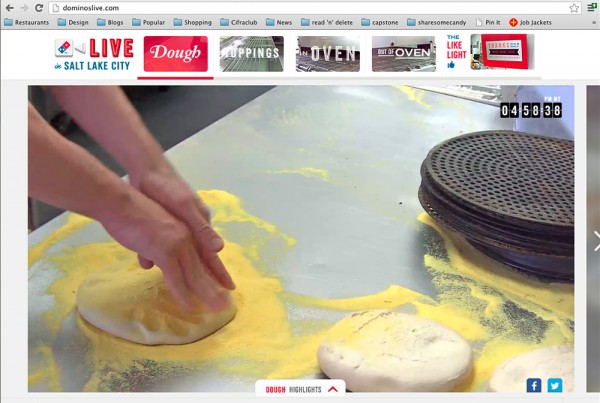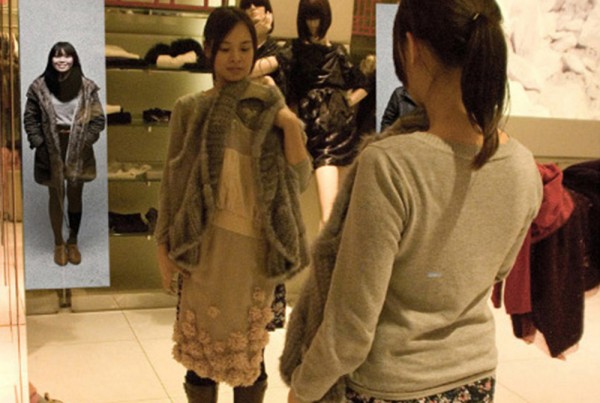BRIEF
Explore the new skills of contemporary social interactions and develop means to bring these new methods out of the computer and into the physical world which we inhabit.
CONCEPT
Digital Meets Physical
Our team was inspired by the idea of creating a unique and memorable experience for people to stumble upon in a public space. In Hong Kong, citizens too often go from place to place, without noticing what is around them or straying from their everyday comforts. We hoped to create a moment of serendipity and public playfulness, and thus the idea of Flux was born.
The Flux concept comprises of two physical interactive portals that exist in different places on campus. The portals are screens that display alternating video streams of each other’s location. The blocks invite people on each side to discover and play with the portal, as they can be physically pushed in or pulled out, and thereby affecting the video streams. The goal of Flux is to invite a sense of curiosity and enjoyment through the juxtaposition of here and there.

(Winner of PolyU Micro Fund for Innovation and Entrepreneurship 2011)
Currently in development for implementation at The Hong Kong Polytechnic University
THE PROTOTYPE
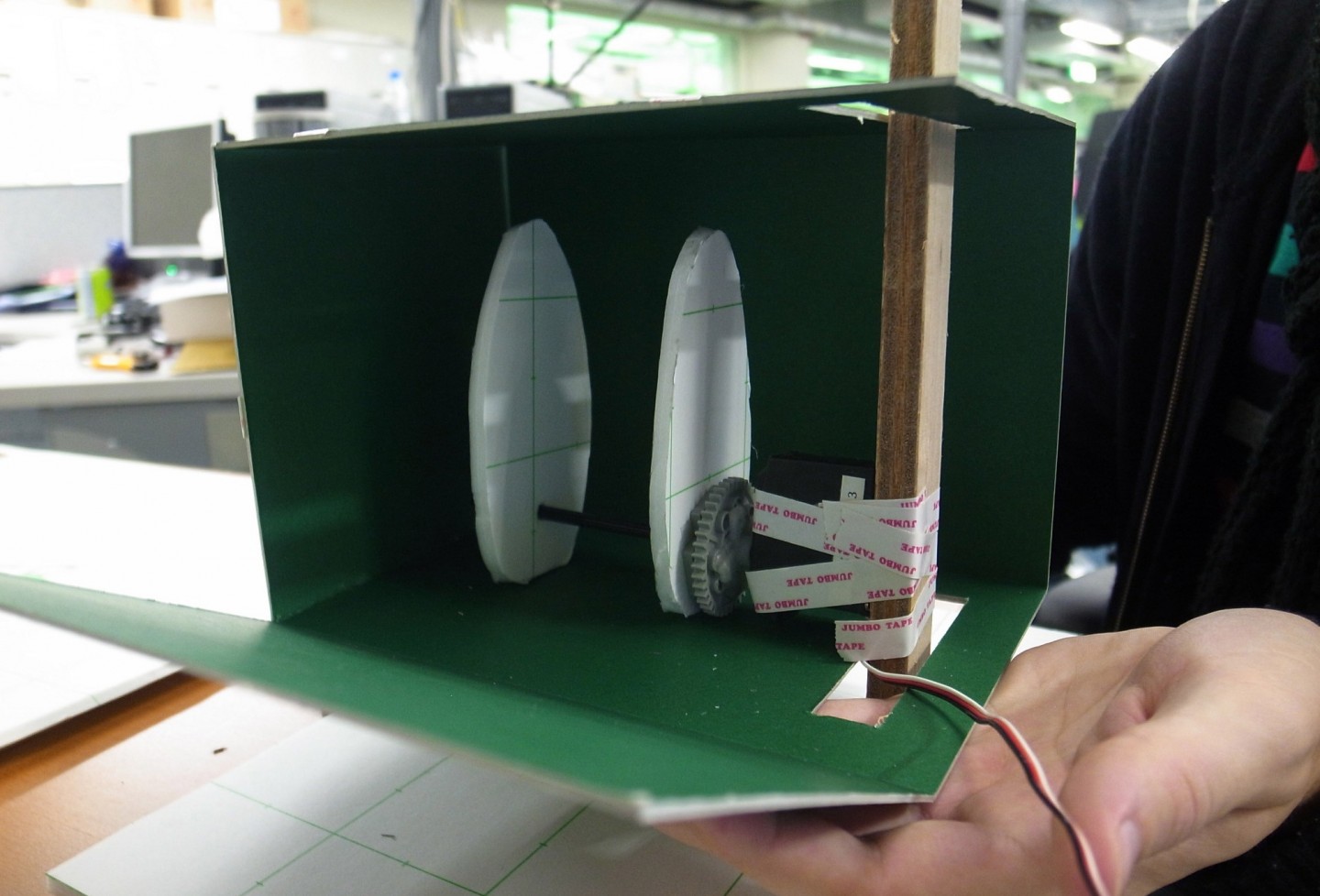
Testing Options
Poster board, scraps, tape and legos were our best friends for early iterations.
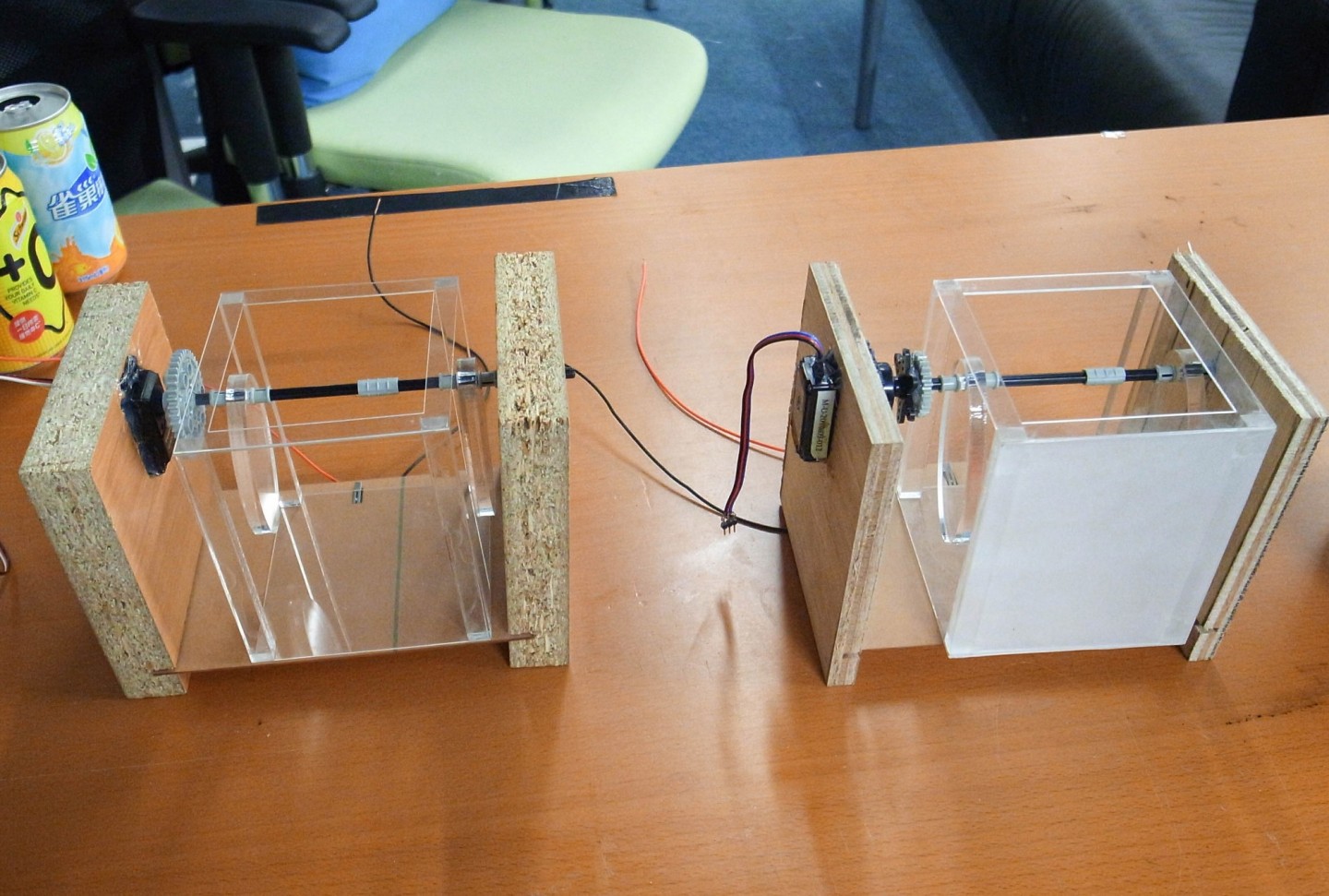
Measure Twice, Cut Once
We made sure we had our exact specifications ready and working before we scaled up.
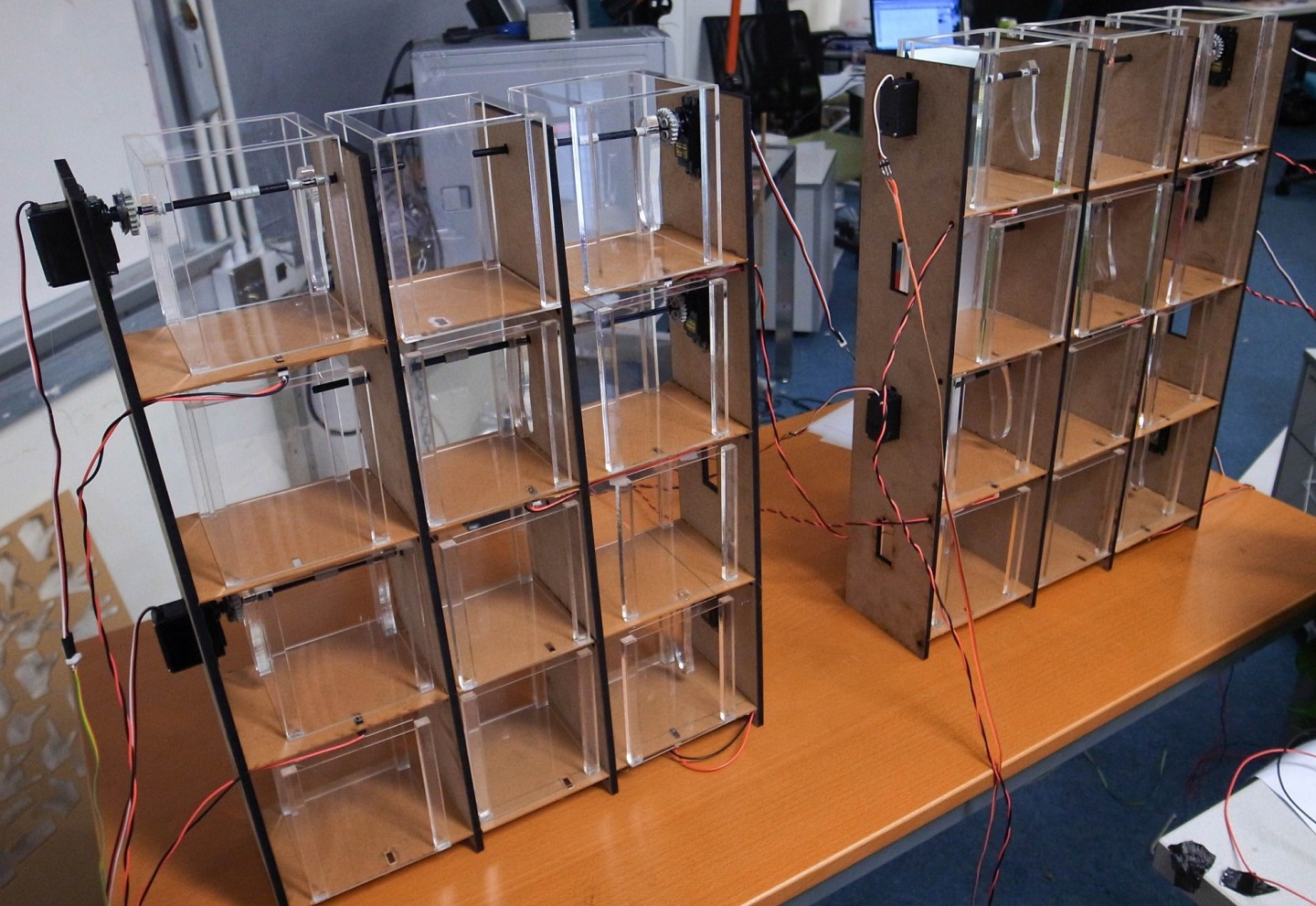
Building Levels of Complexity
Going larger meant more planning, plastic, motors, wires, and patience.
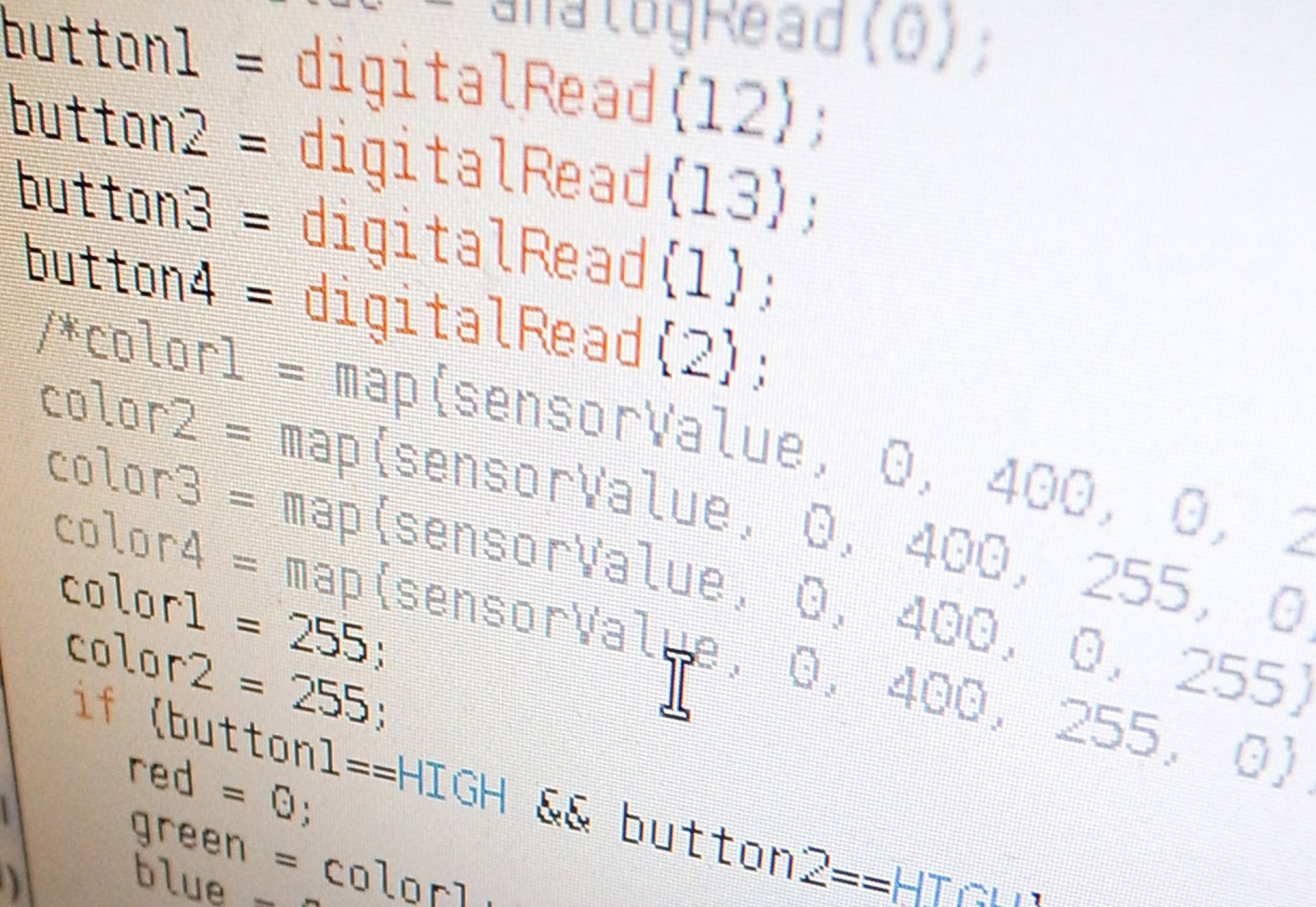
Bringing It To Life
We used the software ‘Processing’ to program the interactions we wanted.

Giving It A Brain
The Arduino’s are the computer or brain of Flux that help it all come together in the end.

Ingredients For Flux
5 Arduino’s, 2 projectors, 10 servo motors, and 2 webcams work together to create Flux.

Selling The Idea
This prototype is a demonstration of the interactions we wanted to enable. Arduino’s were connected to a central computer which processed the signal from each switch and subsequently controlled the movement of each servo motor and live video feed. The video was projected onto the boxes through 2 different projectors, but in a final design the video would be presented on individual television or LCD screens.
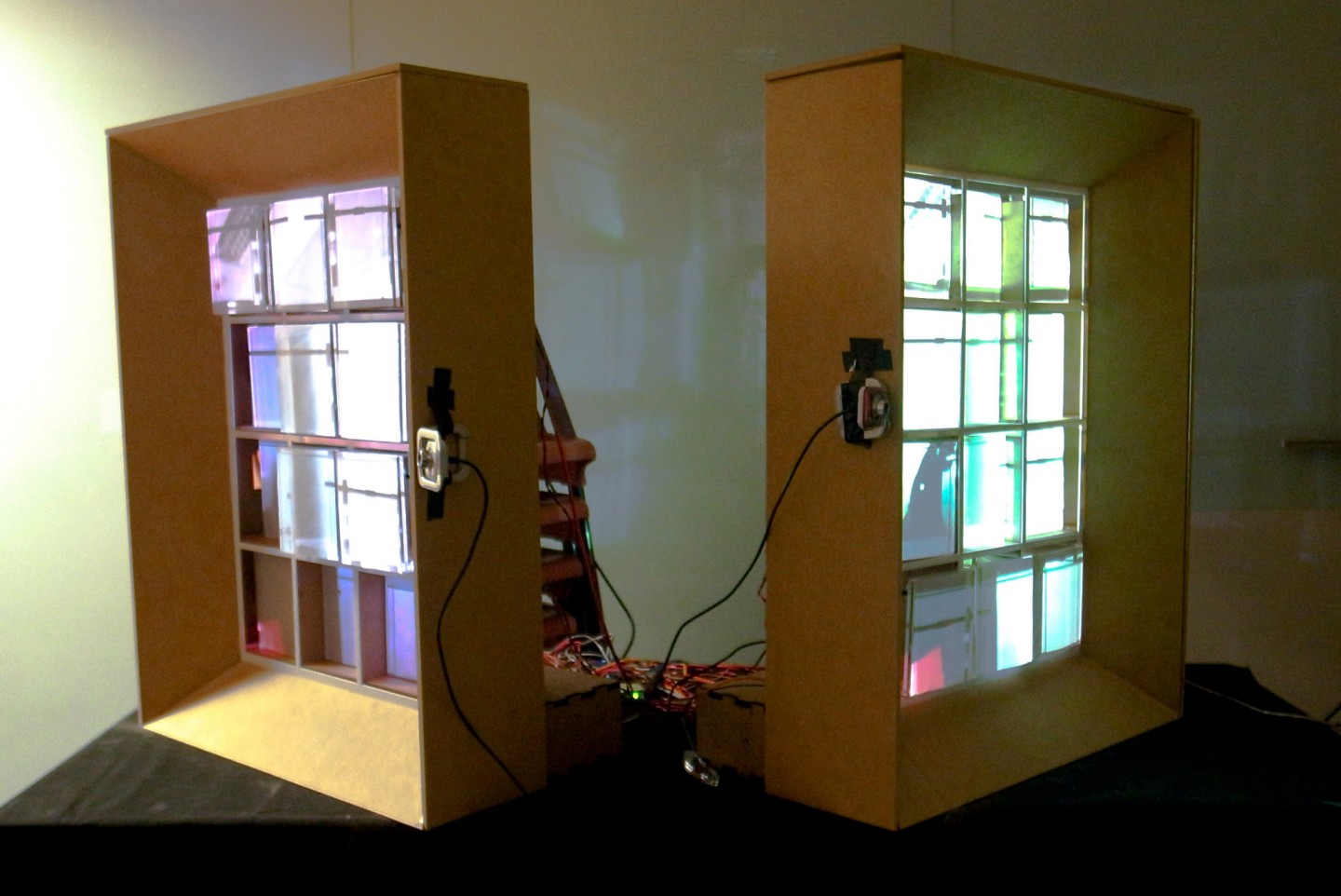
PROCESS & WALKTHROUGH

Each box is comprised of 2 cams and a motor to help push it in and out.
A set of two boxes with their respective motor and switch are connected together by an Arduino. Note the above schematic.
A short demonstration of making the boxes move one another.
A short demonstration of how the video streams are changed.
An explanatory video of how FLUX works.
CREDITS
Graduate School
Hong Kong Polytechnic University
Responsibilities
Concept, Art Direction, Construction of Physical Prototype, Arduino Programming
The Team
Work by Mark Bowers, in collaboration with Charles Law, and Cedric Sam
Date
May 2011

